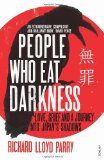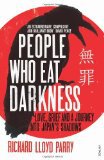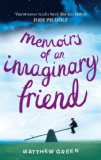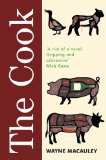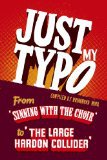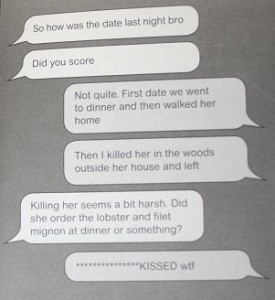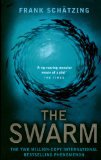 Translated from the German by Sally-Ann Spencer
Translated from the German by Sally-Ann Spencer
The Swarm by Frank Schätzing
Five words from the blurb: sea, killed, mankind, science, ecological
I’ve been wanting to read this for a long time, but at nearly 900 pages it intimidated me. German Literature Month inspired me to put aside my fears and I dived in. I was reminded of the wonderful Michael Crichton books I used to read and was immediately gripped by the compelling plot.
The book is set in the near future at a time when the world is being battered by a series of natural disasters. People keep dying at sea and the number of unexplained deaths is increasing every day. Groups of experts gather to research the situation, but as the condition escalates it becomes increasingly hard for them to understand what is happening.
The writing was very good and there were lots of powerful warnings about the damage mankind is doing to the planet.
Understanding the planet was no longer enough for most people; they were trying to change it. In the Disneyland of botched science, human intervention was forever being justified in new and disturbing ways.
I initially loved this book – the science was well researched and the scenes were tense, exciting and full of foreboding. As the book progressed I found that this wasn’t enough and I began to lose interest. There was no central character to engage with and, although the science was technically accurate, I couldn’t believe the events would ever occur. Instead of becoming increasingly scary I found the action increasingly ridiculous. I abandoned the book after 250 pages.

The Dogs of War by Frederick Forsyth
Five words from the blurb: African, secret, mercenaries, tycoon, government
I was inspired to read this book after attending a wonderful talk from the author a few weeks ago. Unfortunately it quickly became obvious that his thrillers aren’t for me – I have no interest in precious metals and became bored by the detailed information on military operations.
The Dogs of War is set in a fictional West African country where a valuable amount of precious metal has been found. A band of mercenaries set out to take control of this resource and gain power of the country.
Unfortunately the characters were flat and so I didn’t care what happened.
‘G’bye, Patrick,’ he said. ‘I’m afraid it’s over now. Take the Landrover and dump it. Bury the guns and mark the spot. Leave your uniform and go for bush. Understand?’
The lieutenant, who a year ago had been a recruit with the rank of private and had been promoted for his ability to fight rather than eat with a knife and fork, nodded somberly, taking in the instructions.
The book felt dated and lacked the emotional depth I like to see in a book. I abandoned it after about 60 pages.
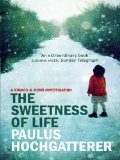 Translated from the German by Jamie Bulloch
Translated from the German by Jamie Bulloch
Winner of the 2009 European Literature Prize
The Sweetness of Life by Paulus Hochgatterer
Five words from the blurb: grandfather, victim, silent, child, psychological
I spotted this book in my library and thought it would be perfect for German Literature Month. Unfortunately it failed to engage me, but I suspect the quality of the writing will be enough to entertain most people.
It was cold. A narrow bank of fog was sitting on the hill behind the buildings. Kovacs had also forgotten his gloves. I forget the camera because Demski’s not here, he thought, and I forget my gloves because I don’t have a wife any more. He bent down. There was something in the snow, driven into the broad tyre tracks which were all over the place. A small, dark, brown stone, that was all. He put it into his pocket.
The book begins with a six-year-old girl discovering the body of her grandfather in the snow outside their home. The girl goes into shock and refuses to talk, hampering efforts to work out who committed the crime.
This was a well written piece of crime fiction, but too many characters were introduced and I struggled to differentiate between them. Each chapter was narrated by a different person and so I found it impossible to connect with anyone. It may well all come together in the end, but I’m afraid I didn’t care enough about the story to want to persevere. I abandoned the book after 80 pages.







